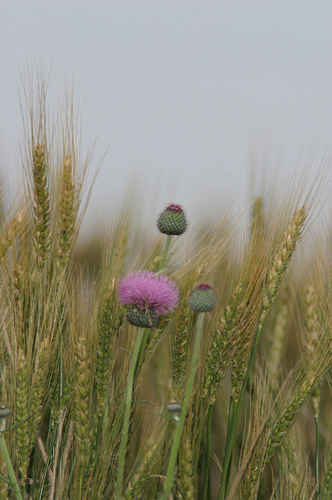Kuwait City, 18-20 July 2014
Homily of the Apostolic Nuncio
His Grace Archbishop Petar Rajič
Wis 12:16-19; Rom 8:26-27; Mt 13:24-43
The invisible Kingdom. From these examples taken from everyday life we can understand that the Kingdom operates in an invisible way. We cannot see how the yeast works in flour, but despite this, it is carrying out its function. The Kingdom comes to us day by day in an invisible way. The prayers that we offer today, the Holy Communion we receive regularly, the confessions and all the sacrifices we make, are our personal contribution to the yeast of the Kingdom that has entered the world through us, which the Lord gives us so that we can extend it to others.
The Kingdom at work. As long as the yeast remains outside it cannot do anything, but once it enters and is mixed with the flour, it begins its work. Perhaps we will never be able to change others and their conditions of life with our words, but we can always influence the world and the people we encounter with our example of faith and good works of charity.
The power of the Kingdom. Flour alone cannot change itself, it just remains flour. We too cannot do anything alone. In order to change our lives for the better, we need the power of the Kingdom which is the leaven of the Holy Spirit that the Father and the Son give to us. The Lord is our teacher and it is he who comes to us to give us the secret power of real life that leads us to his Kingdom. We constantly need the Holy Spirit in order to become good soil, capable of receiving the good seed of God’s word, which produces lasting fruit.
The Kingdom is positive. Another lesson to be learned from these parables is the need for a positive attitude. There will always be weeds present in our lives and the world around us, which can suffocate even our noblest efforts. There is no need however, to be discouraged due to the setbacks and the presence of evil. Despite this, we have to become even more aware of the need to continue planting the seed of good deeds, to appreciate the gifts that God has given us and to use them for our good and the benefit of others. We therefore need not be preoccupied with the bad and the negative that exists in us and around us. God for some mysterious reason allows it all to exist along with the good seed that he provides, yet he wants that which is good to remain good, to grow patiently and develop constantly, so that the good can prevail. The Kingdom therefore starts from the smallest things in life and none of us can foresee where or when or how it will develop, but through faith we know that in the end that God will bring the good to completion.


